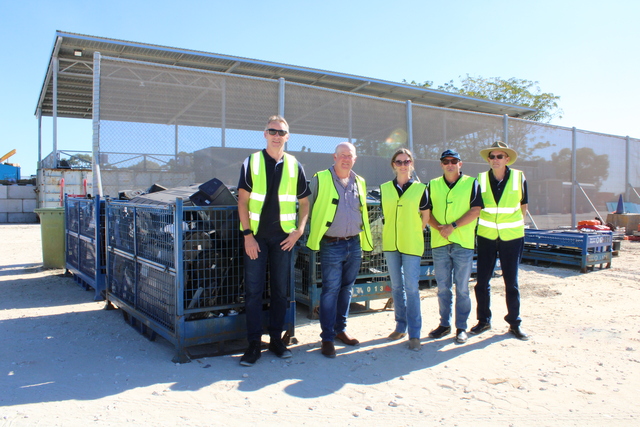With some of the world’s most remote communities, it is not surprising that the Northern Territory Library Service has the highest percentage of borrowings per head of population in Australia. The Service is dedicated to providing information to people wherever they live, and providing that information in the way that is most suitable for each community.
Assistant Secretary of Library Services in the Department of Housing and Local Government, Leah Giles-Peters, said the key issue for the Northern Territory Service is how to deliver services to very small, remote communities and how to show communities the range of services available, in a cost effective way.
With so many small and scattered communities, together with limited resources, the Service must employ a degree of lateral thinking to achieve its aims. It has some 20 conventional libraries, as well as the Country Borrowers Service. This operates by post and through the school support program.
Recently the Service introduced a caravan which, in the dry season, travels to remote communities similar to mobile libraries in other parts of the country. However, unlike the traditional mobile library, it contains examples of various ways library services can be delivered. This includes the Internet, CD Rom and other electronic facilities.
During the caravan’s stay in a community, local people have the opportunity to assess the type of service delivery that best suits them and ascertain whether or not a conventional library really fills their needs.
Recently, the caravan spent six weeks at Timber Creek Community Centre, 300 kilometres south west of Katherine, where local people had the opportunity to consider various options.
“The best type of service often depends on the infrastructure available,” Leah Giles-Peters said. “Many communities have only recently had telephone lines connected so Internet facilities may not always be a viable option.”
A holistic approach she said, is more likely to achieve better outcomes. If, for example, health needs are high, it might be possible to provide first aid or other related information through an electronic classroom. Other applications might be better served in different ways.
For further information contact Elizabeth Ganter, Director Client Service Program, telephone (08) 8999 8930.







